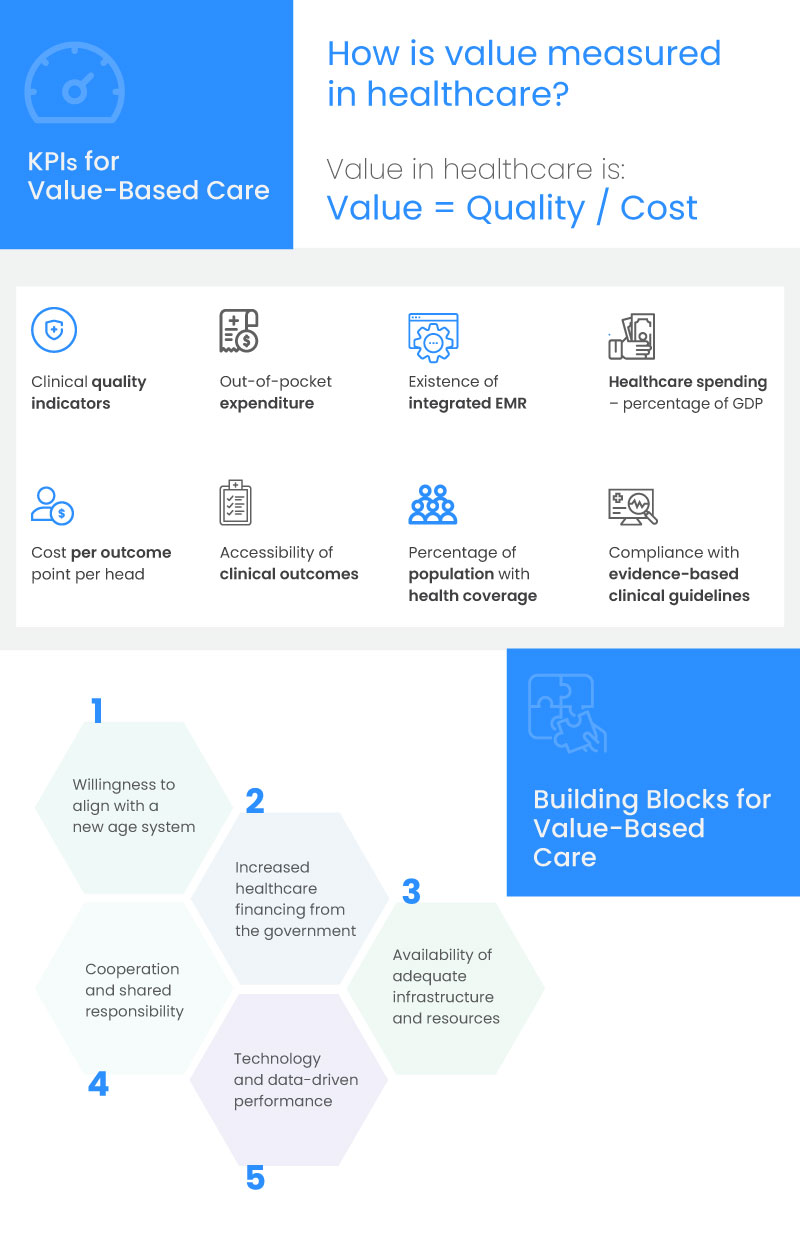Adopting Value-based care
Adopting Value-based care in the Current Healthcare Landscape

Blog
Adopting Value-based care in the Current Healthcare Landscape

To drive sustainable outcomes, physicians need to stay abreast with the latest AI and analytics capabilities that can transform patient care.
V alue-based care has shifted from a choice to an imperative—driving healthcare organizations to reduce costs and enhance quality of care. However, statistics reveal that the pace of adoption is slow. Discover the key strategies for physicians to shift from volume to value-based healthcare
Value-based care models are specifically designed to mitigate costs and drive health outcomes. Value-based payment models, as against Fee-For-Service (FFS) models demand higher quality of care and better outcomes and for a reasonable cost from the care providers. Though the care providers are increasingly adopting value-based care models in terms of cost and quality, research reveals slow progress in certain aspects including—physician compensation, decision-making tools among the others.

Physician compensation focuses on volume over value. Conventional methods of physician compensation still has performance incentives as an exception rather than making them mandatory benefits. The current models have significant care gaps, and organizations need to take drastic measures to improve the care settings. Some of these initiatives include:
Shifting Physician Compensation to Value-based model. Physicians’ ultimate goal is to deliver high-quality care to patients while elevating patient experience and driving health outcomes. Reimagining physicians’ work model from productivity to value can help reduce physician burnout as well as add value. Physician compensation models need to be restructured in order to align with value-based approach that includes strategy and the mission, among many others.
Equip Physicians with Advanced Tools. Care providers are increasingly adopting next-gen patient engagement solutions, data and insight-driven tools, interoperability strategies to advance care quality. To drive sustainable outcomes, physicians need to stay abreast with the latest AI and analytics capabilities that can transform patient care.
Decision-making Tools. Hospitals and practices need to unlock the potential of Patient Reported Outcomes (PROs), Social Determinants of Health (SDOH) and other critical data to help in decision-making and proactive care strategies. These tools should be designed with human-centered approach to drive adoption and optimize engagement.
Value-based payment models are associated with improving patient outcomes and reducing the cost of care delivery. Value-based care encapsulates various factors including:
A deep dive into value-based payments to be released on 12th Nov 2020!
From our humble beginnings as a healthcare start-up—to becoming a full-blown healthcare-exclusive digital transformation provider, our journey has been quite a remarkable one. Today, SolvEdge is a leading-edge Healthcare services and solutions provider—trusted by 450+ Hospitals, 3500+ Physicians and millions of patients across the globe.